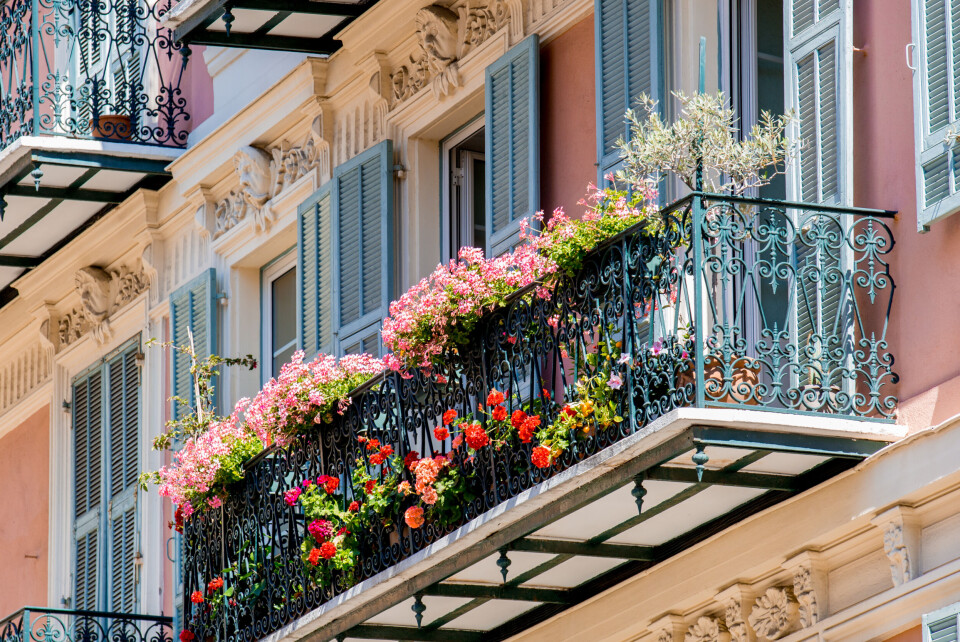-
Two rules to not fall foul of around vide-greniers sales in France
There are several regulations around what can be sold – and how - at these car-boot-style events
-
Let your lawn grow, water for birds: how to help wildlife in your French garden
‘It is acceptable to have untidy hedgerows,’ says biodiversity spokesperson.
-
How to help hedgehogs in your garden in France
Follow these tips to create a healthy ecosystem for this protected species
Can we decorate our French balcony with plant pots?
Balcony use will depend on apartment block rules but these are usually quite liberal

Reader question: We live in an apartment block with no garden but a small balcony, and want to use it to grow some plants/herbs. Can we do so or do we need permission?
There is nothing in the French law codes relating to balconies: more often than not, what you can and cannot do with your balcony is subject to the rules of the building you are living in.
So, as a general rule, installing pots of flowers or herbs will be fine, unless there is something in the règlement de copropriété (building rules) saying otherwise.
Before doing any serious work on your balcony, you should, however, check to see if there is anything mentioned in the rules about it, or talk to your building’s gardien (caretaker) if you have one, or the syndic (management body).
Otherwise, departmental health regulations may affect what you can put on your balcony – for example in Paris it is forbidden to leave flammable liquids, seeds, bread crumbs or food of any kind on windows, balconies or outdoor areas of buildings.
You can check these health regulations with your local mairie.
On top of this, common balcony items (such as drying clothes and plants) must not create unsanitary, dirty, or dangerous conditions for other residents of the building, neighbours in the street, or passers-by.
Are there limits to what I can place on my balcony?
The rules for your building are liable to vary depending on whether (as is usually the case) the balcony is part of your private space, or is a communal area shared with others.
If the area is classified as private, as the owner you can do whatever you want to the balcony, including adding furniture, carpets, flowerpots and other items, assuming there is nothing in the building regulations to say otherwise.
Some places, for example, might prohibit the installation of a barbecue or plancha, restrict flowerpots (especially hanging ones) to a certain weight or not allow vegetation above a certain height.
Note that if you hang flower baskets from the balcony (if allowed), then it is your legal responsibility to make sure they are secure and do not fall off and cause injury.
Furthermore, the external aspects of the balcony must not be altered.
Read more: Can I have an outdoor fire pit or chiminea in my French garden?
If classed as a communal area of the building, then it is all the building’s residents who are responsible for the maintenance, potentially through building charges – although a single person/property may be given exclusive use of the common area, especially if attached only to their property.
In the case of the latter, the owner can develop the balcony as they wish, as long as the external aspects remain untouched.
‘Changing the external aspects of the building’ includes both aesthetic changes (such as painting the windows a different colour as well as structural changes such as constructing a veranda or installing a new canopy for shelter from the sun (or replacing one with a larger one, or a differently-coloured one).
For a change like this, you will need to ask for a vote at the AGM of the property owners.
Related articles
France wants to expand AI use to find undeclared verandas and sheds
Garden parties in France: Do I have to get permission to host one?
























